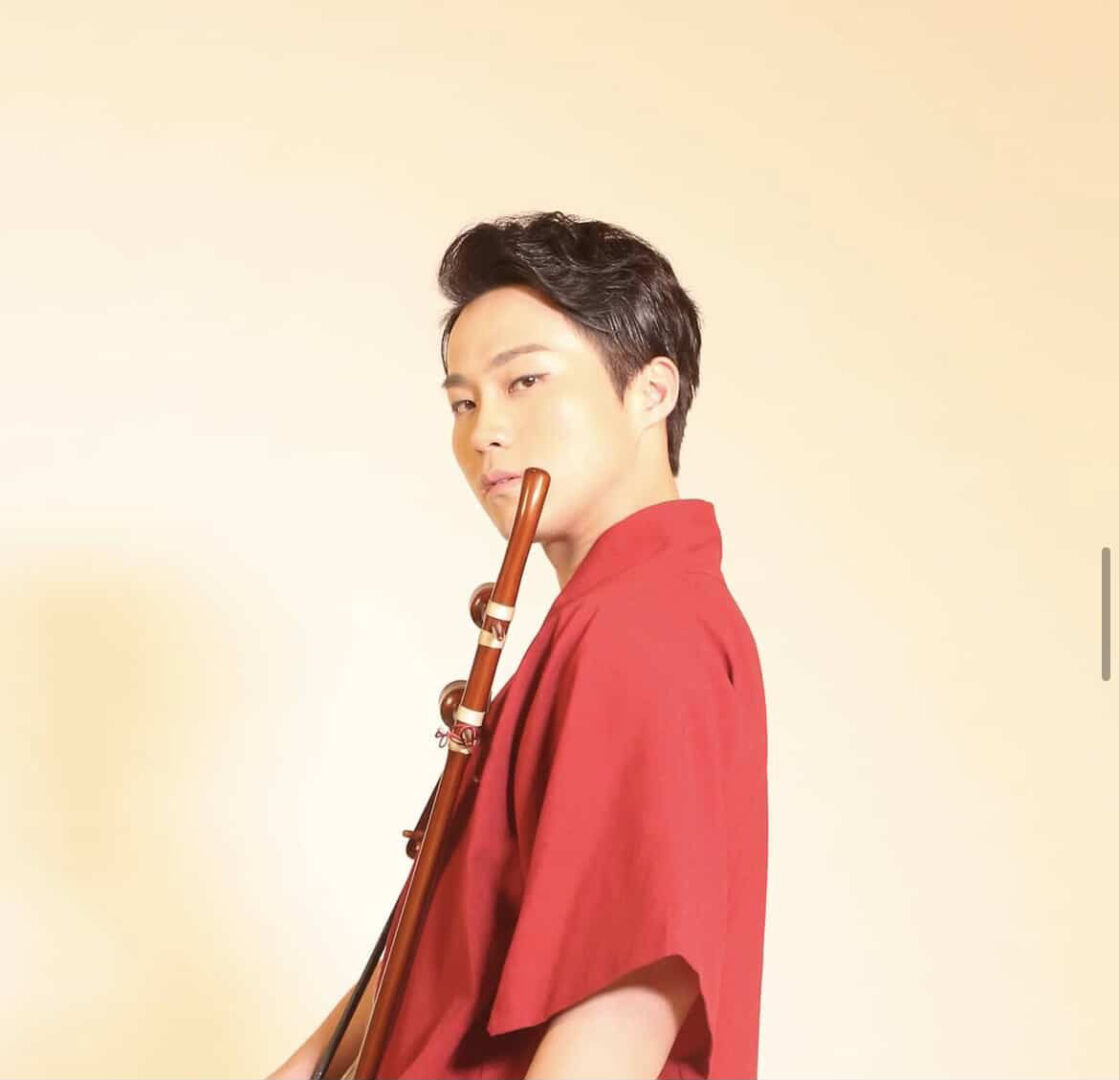We were lucky to catch up with Frederic Iido recently and have shared our conversation below.
Hi Frederic , so excited to talk about all sorts of important topics with you today. The first one we want to jump into is about being the only one in the room – for some that’s being the only person of color or the only non-native English speaker or the only non-MBA, etc Can you talk to us about how you have managed to be successful even when you were the only one in the room that looked like you?
Traditional Korean music is fundamentally different from Western music — not just in sound, but in how it’s conceived, transmitted, and expressed. That means our instruments carry a distinct energy and beauty that I’m proud of. But when trying to integrate this tradition into commercial or Western musical contexts, I often faced a heavy burden of reconciliation.
In my twenties, I made a difficult but necessary decision: I realized that at that stage, fusion was not truly possible. If I stepped into the world as I was then, I would end up creating mediocre hybrid music that comforted only myself. So I walked away from everything — my income, network, job titles — and with humility, I began learning computer music, jazz, and modern production. I found mentors, made friends, listened obsessively, and confronted deep loneliness like the “ugly duckling.” That period has lasted nearly ten years, and only now am I starting to see real results.
The first crucial step was learning to be comfortable in solitude. Since it was hard to break away from compromised musical habits, I chose instead to step back from certain people and environments. That gave me space to rebuild from the ground up.
At some point, I began programming my own “musical algorithms” into the haegeum, a traditional Korean fiddle. Unlike the violin or erhu, the haegeum has no fingerboard, making equal temperament and accurate chromaticism extremely difficult. No one had really done what I was attempting — the performer has to audiate every pitch in the mind before producing it. I started writing daily logs about this experiment seven years ago. Slowly, it’s starting to take form.
Ironically, the uniqueness of this challenge gave me a sense of calling — that I might become a pioneer. And that conviction gave me strength every time I wavered.
Second, I never rejected commercial music. In fact, I’ve come to believe that true creativity operates over a long horizon. While I chose to detach from some relationships and immerse in music, I also accepted that each artist faces different realities. I now balance things: I share my gifts with the public, engage in work like film, game, and advertising music, and dedicate the rest of my time to personal creative training. I don’t have much leisure time, but I find joy and peace in this life.
Finally, to directly answer the question: it’s not easy to be effective or successful when you’re the only one in the room who looks like you — because people tend to focus on people, especially those who resemble them. This tendency shows up in music too: many rely on “reference tracks” to feel secure. But my philosophy is the opposite — I try not to focus on people at all.
Rather than relative evaluation, I live by an absolute one — Coram Deo — a Christian term meaning “before the face of God.” I try to make decisions not in comparison with others, but in honest alignment with my convictions before God. In that posture, competition fades, ego softens, and I’m free to build something unique. If others come to see it as “distinctive,” that’s fine — but that recognition is not the goal. Staying true to the calling is.
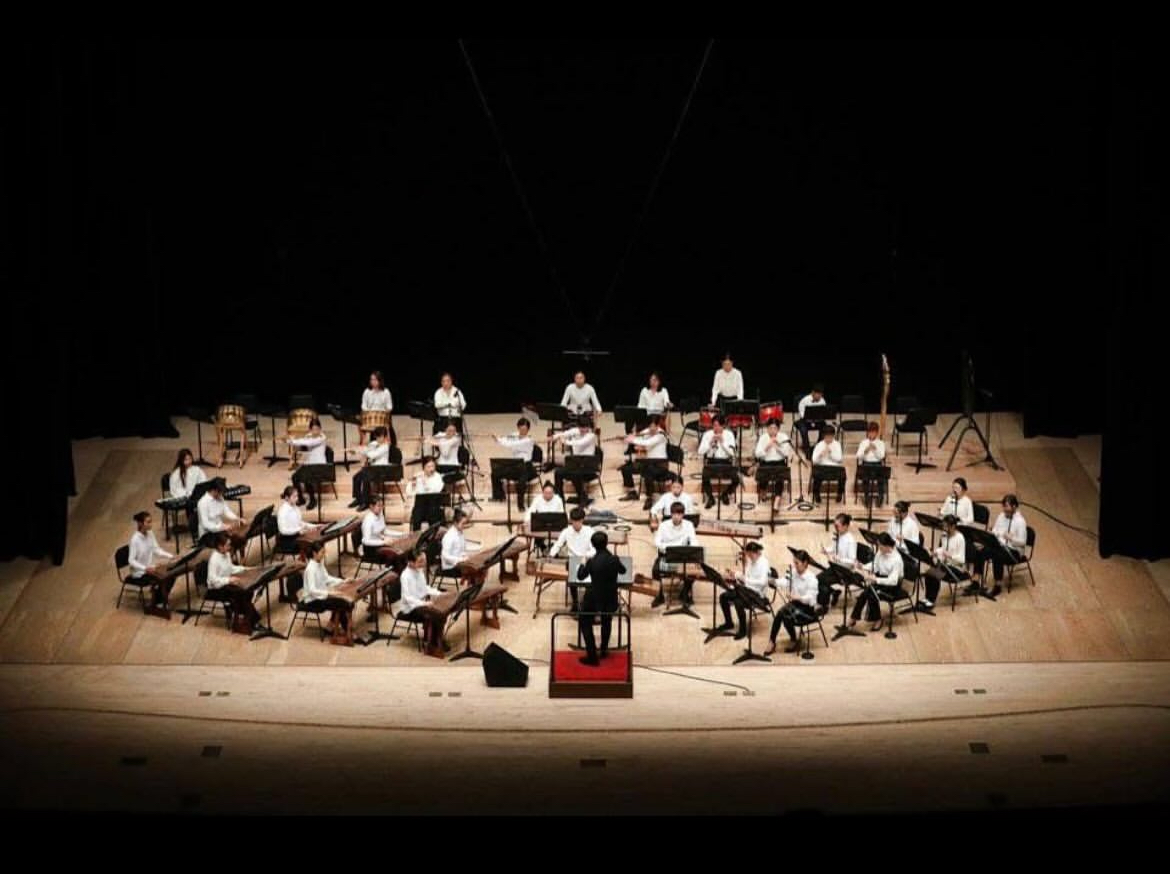
Thanks for sharing that. So, before we get any further into our conversation, can you tell our readers a bit about yourself and what you’re working on?
Before my current role, I was part of a nonprofit initiative called EYEAR, where we hosted donation-based concerts and artistic projects centered on Korean traditional music. We focused on reinterpreting cultural assets like architectural blueprints and heritage sites through sound — creating immersive spatial music experiences that blended tradition with innovation. One particularly meaningful project involved translating historic architectural blueprints into musical scores — a unique fusion of cultural preservation and experimental composition. It was recognized and supported as an official cultural grant by the Korean government, and parts of this project were even exhibited at the TEDxSeoul office booth last year.
I also began exploring AI-generated music early on, both as a composer and as part of a creative collective/label.
Now, I serve as the COO and in-house composer at YK Music Production, a rapidly growing music company originally founded in the U.S. and now operating across Korea, Europe, and beyond. At YK, we create soundtracks for animation, games, and films, with a strong focus on storytelling and worldbuilding. One of our core missions is to revive Korean traditional elements — from folk instruments to narrative structures — and bring them into global platforms like Netflix, indie games, and international cinema.
We’re also actively involved in K-pop production, and through our work, we aim to contribute meaningfully to both the traditional and mainstream sides of the music industry. Our vision is to grow YK Music into a truly global production powerhouse, rooted in heritage but always reaching forward. Our team includes notable talents such as Yaekun Yoo, who brings exceptional musical insight and leadership to the studio.
Personally, I dream of one day taking the blueprint-to-music project to the world — performing it as a full orchestral + Korean traditional music concert tour across global stages.
More than a showcase, I envision it as a Peace Concert, bringing music and comfort to places affected by war and conflict. For me, music is more than art — it’s a form of love and a channel for peace.
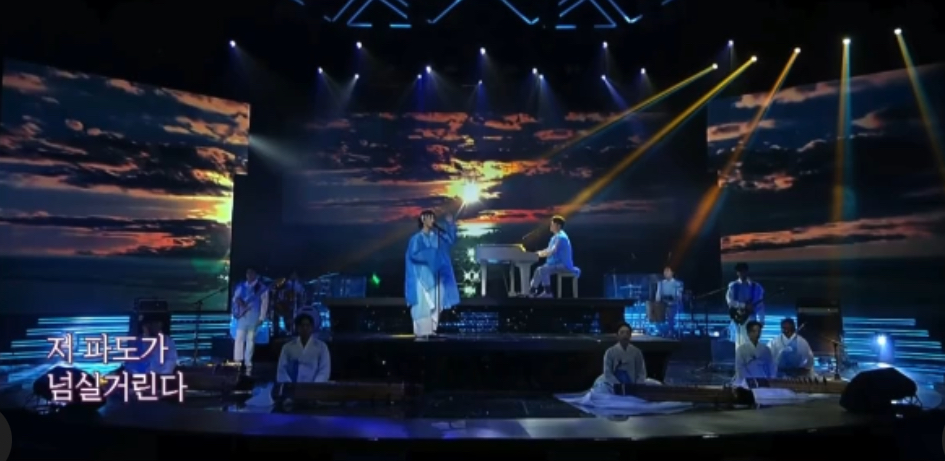
There is so much advice out there about all the different skills and qualities folks need to develop in order to succeed in today’s highly competitive environment and often it can feel overwhelming. So, if we had to break it down to just the three that matter most, which three skills or qualities would you focus on?
For me, the three most important elements have been:
✨ Sparkling creativity,
🎨 Refined artistic sensitivity, and
🔥 Unshakable perseverance.
Creativity comes from how you think — not just what you know.
In my case, I believe my creativity was shaped early on by growing up close to nature and in a home environment that allowed open, unrestricted thought. I was encouraged to let my thoughts spiral and connect freely — a kind of limitless expansion of ideas.
Personally, I feel it’s unfortunate that many children in places like Seoul grow up under intense academic pressure, which can unintentionally suppress this type of creative thinking. That said, I don’t believe children must grow up in nature. What matters is that parents — or the individual — make an intentional effort early on to cultivate that kind of expansive thinking, especially in childhood.
Artistic sensitivity, in my view, is something that’s best nurtured from an early age. While genetics may play a role, what truly matters is sensory exposure — touching things with your hands, feeling soil, water, mountains, or the warmth of animals. These sensory experiences, across sight, smell, hearing, and even synesthesia, are deeply connected.
True inspiration flows from this organic understanding of the senses, not just from textbooks or structured classes. That’s why I strongly believe in field learning — getting outside, touching art, really listening to music, and engaging the senses in a healthy and integrated way.
And finally — perseverance.
While many people raised in good environments may have the first two qualities, especially those with great taste or talent, I firmly believe no artist can truly succeed without this third one.
Because the truth is — not all creative work comes from inspiration. Much of it comes from habit. You create even when you don’t feel like it. You don’t wait for the perfect moment. You don’t need a deadline. It has to become part of your life.
In some ways, I think it’s similar to a monk’s life. It might look boring or difficult from the outside, but once you’re in it — deeply immersed — the kind of love and joy you discover in the creative process is something you can’t replace with anything else.
Of course, everyone’s capacity and environment are different. That’s why I believe the balance between creative pursuit and financial activity will vary from person to person. But if you’re walking the artistic path, perseverance is not optional — it’s essential.
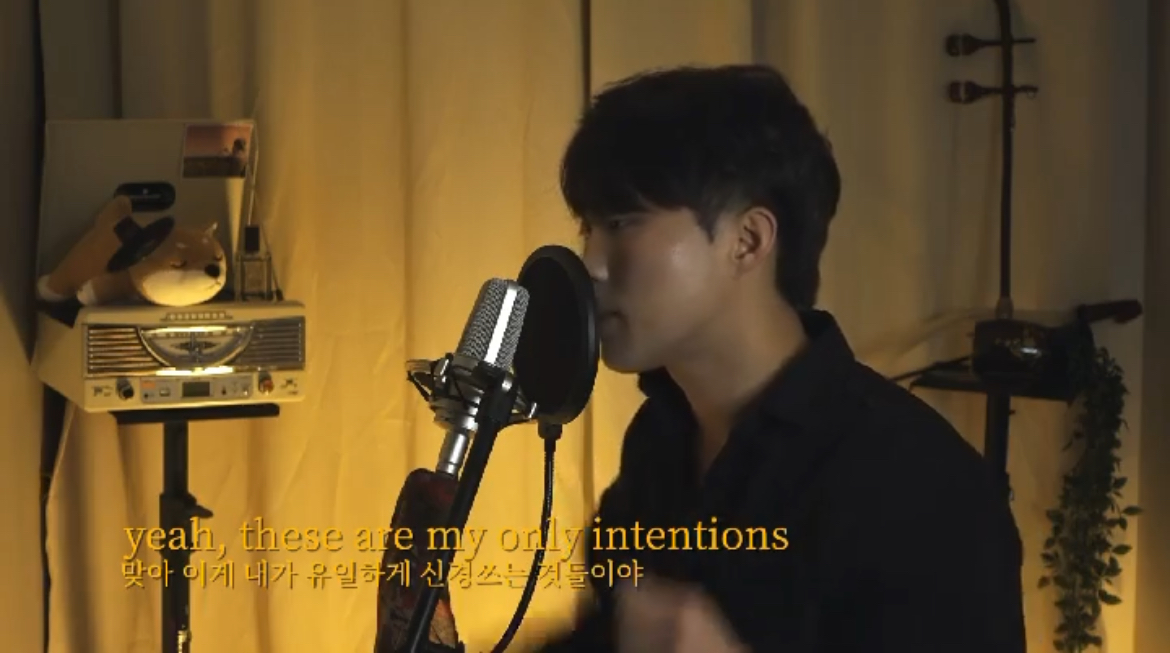
One of our goals is to help like-minded folks with similar goals connect and so before we go we want to ask if you are looking to partner or collab with others – and if so, what would make the ideal collaborator or partner?
A:
Yes, absolutely. We’re always looking for meaningful collaborators across games, film, branding, and cultural projects — anyone with a story, vision, or idea that could lead to creative impact.
Inspiration can come from anywhere. Sometimes it’s commercial; other times, it evolves into something emotionally or culturally powerful — like a live performance, a concept album, or an art installation. We welcome all of it.
Recently, I spoke on a radio program about the use of AI in music, especially in the context of traditional Korean music. I’ve been actively exploring AI technologies, even during early beta phases — not out of luxury, but necessity. As a student with limited resources, I had no budget or access to big studios. But that challenge pushed me to learn fast and create music using cutting-edge tools.
Now, I use that knowledge to train emerging creators, and to deliver higher-quality work to clients. I’m constantly sharing feedback with researchers and staying informed about ethical concerns, especially around copyright and authorship.
For me, collaboration isn’t just about production — it’s about dialogue, shared curiosity, and growth. I’m always thirsty for new conversations, new intersections between art, tech, and tradition.
If any of this resonates with you, I’d love to hear from you.
👉 Feel free to reach out at [email protected].
Let’s build something meaningful together.
Contact Info:
- Website: https://iido.imweb.me/?fbclid=PAZXh0bgNhZW0CMTEAAaf0khhO2Oz06T7HUwj6KNWkIJ8osiLhpvnU5O0rLkT6hUT_MeV2WIF8KOfSvA_aem_vzvAjsOWI9cBWgKvia_S3g
- Instagram: https://www.instagram.com/iido.music/
- Youtube: https://www.youtube.com/@eyear6389
- Soundcloud: https://soundcloud.com/yeakunyoo
- Other: https://www.ykmusicproductions.com
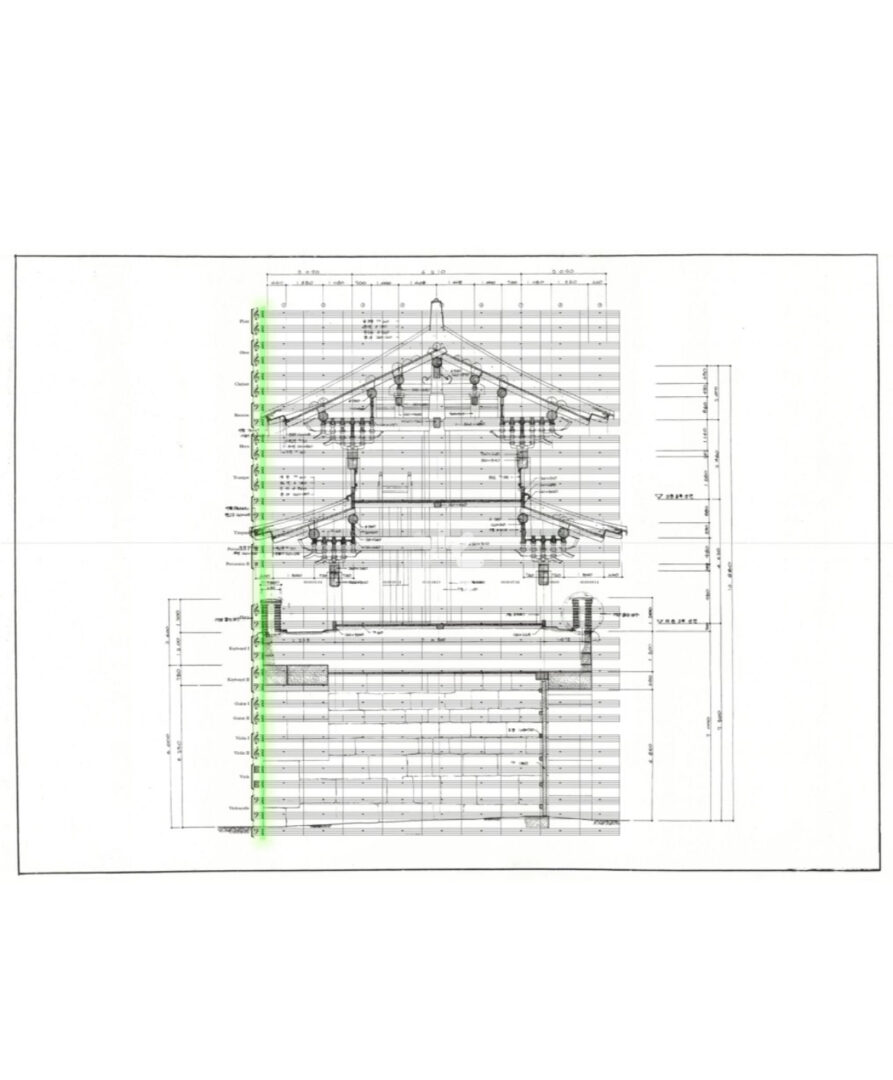
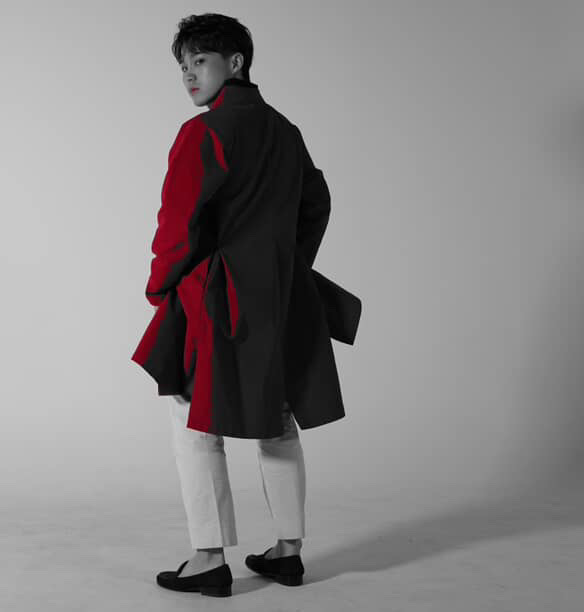
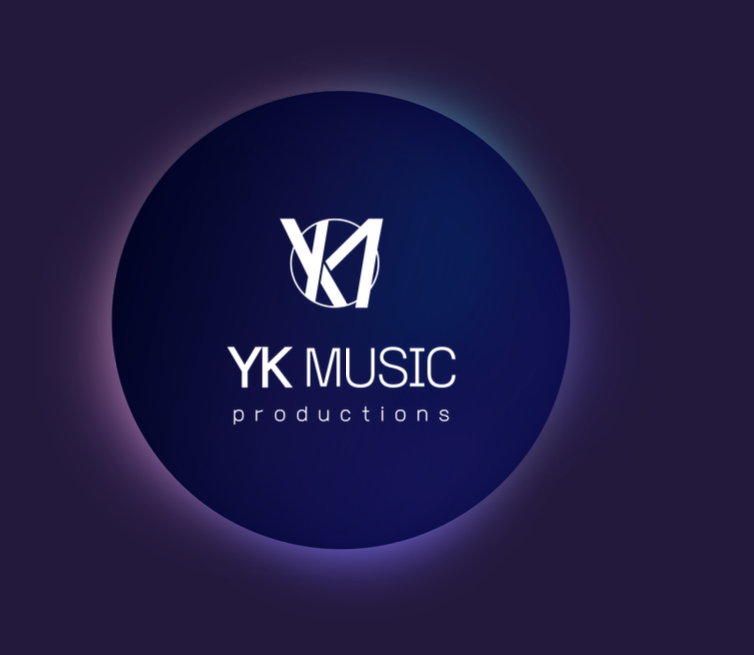
so if you or someone you know deserves recognition please let us know here.

